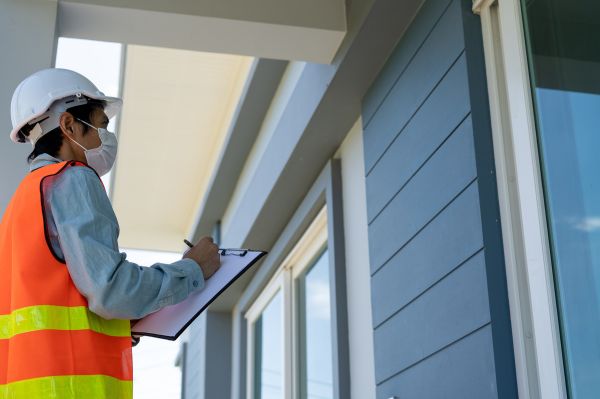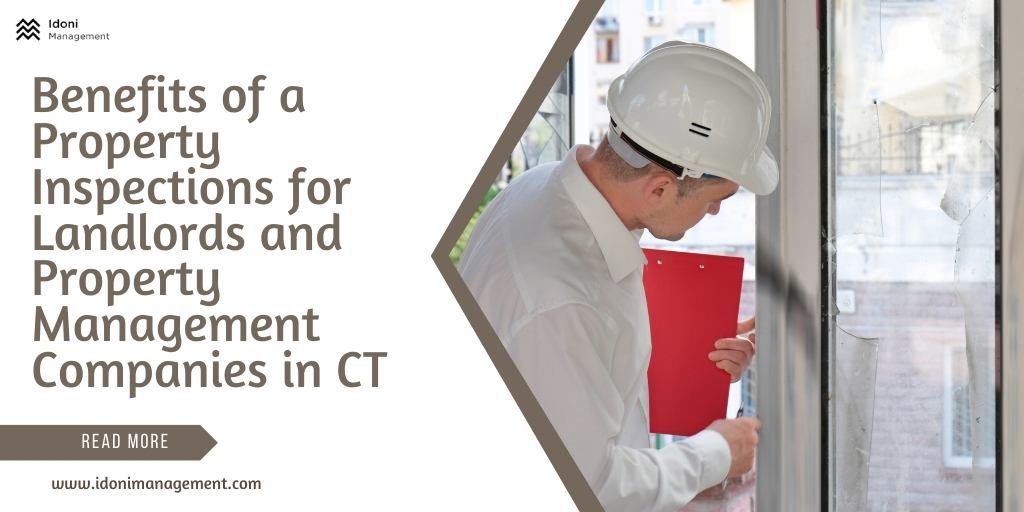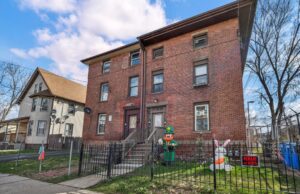Owning and managing rental properties comes with great responsibility. As a landlord, you must ensure that your tenants are living in a safe, comfortable, and well-maintained home. Regular inspections allow landlords and property managers to catch issues early before they spiral into costly repairs. By checking properties routinely, landlords can also reduce liability risks and disputes down the road. Most importantly, inspections give tenants peace of mind, demonstrating that you care about their safety and satisfaction.
In this article, we will explore the benefits of rental property inspections for landlords and property management companies in Connecticut. emphasizing the inspection costs, procedures, and how to approach common issues diplomatically.
Why Is Regular Property Inspection Important?
Regular property inspections are really important for landlords and tenants. They help make sure that rental homes follow all the rules and safety standards set by the law. This keeps tenants safe and protects landlords from getting into trouble.
Additionally, these inspections help landlords catch and fix problems early before they become big and expensive. This saves time and money for everyone and makes tenants feel safer and more trusting.
Keeping good records of these inspections also helps landlords if there are any disagreements or legal issues later on. Overall, regular inspections show that landlords care about their properties and the people living in them, building a good relationship between landlords and tenants.
What are the Types of Inspection?
There are several types of inspections that can be conducted on a property, each serving a specific purpose and focusing on different aspects of the property’s condition. Some common types of inspections include:
- General Home Inspection: This is the most common type of inspection and typically covers the overall condition of the property, including the structure, roof, plumbing, electrical systems, HVAC systems, and more.
- Termite Inspection: Also known as a wood-destroying organism (WDO) inspection, this type of inspection focuses on identifying any signs of termite or other pest infestations that could damage the property.
- Radon Testing: Radon is a naturally occurring radioactive gas that can seep into homes and pose health risks. Radon testing measures the levels of radon gas present in the property.
- Mold Inspection: Mold inspections identify the presence of mold growth within the property, which can be harmful to both the property’s structure and the health of its occupants.
- Septic System Inspection: This inspection assesses the condition and functionality of the property’s septic system, including the tank, drain field, and associated components.
- Well Water Testing: If the property relies on a private well for its water supply, well water testing checks for contaminants and ensures the water is safe for consumption.
- Electrical Inspection: This inspection focuses specifically on the property’s electrical systems, ensuring they are up to code and functioning safely.
- Roof Inspection: A roof inspection assesses the condition of the property’s roof, including the roofing materials, flashing, gutters, and overall structural integrity.
You can also check out our guide on how landlords handle rental inspections before tenants move in and after they move out of the property.
Key Benefits of Rental Property Inspections:
Property inspections offer a multitude of benefits for landlords and property management companies operating in Connecticut. Here’s a closer look:

- Compliance & Safety: Regular property inspections keep rental homes up to code, ensuring tenants’ safety and landlords’ legal compliance.
- Property Value Protection: Routine inspections catch maintenance issues early, preserving property value and saving on costly repairs.
- Tenant Satisfaction: Proactive inspections show tenants their landlord cares, leading to happier renters and longer leases.
- Risk Reduction: Inspections minimize conflicts and legal expenses by addressing issues before they escalate into disputes.
- Efficient Inspections: Digital tools streamline inspections, saving time and improving accuracy for property management companies.
- Cost Savings: Regular inspections prevent costly repairs and legal fees, ensuring landlords’ long-term financial stability.
- Legal Compliance: Prioritizing compliance through inspections helps landlords avoid legal trouble and maintain a positive reputation.
Who Pays for House Inspections in CT?
In Connecticut, the responsibility for paying for house inspections typically falls on the buyer. This is because the buyer wants to ensure they are making a sound investment and that the property they are purchasing is in good condition. However, it’s essential to clarify this aspect in the real estate contract, as sometimes sellers may agree to cover the cost of certain inspections to facilitate the sale.
Ultimately, the arrangement regarding who pays for house inspections can vary depending on the negotiations between the buyer and seller.
How Long Does a Home Inspection Take?
The duration of a home inspection can vary depending on various factors, such as the size and condition of the property, as well as the thoroughness of the inspector. On average, a standard home inspection in Connecticut may take anywhere from two to four hours to complete.
However, larger or more complex properties may require additional time for a comprehensive assessment. Both buyers and sellers need to allocate sufficient time for the inspection process to ensure that the inspector can thoroughly evaluate the property and provide accurate findings.
Cost of Home Inspection in CT
The cost of a home inspection in Connecticut can vary depending on several factors, including the size, age, and location of the property, as well as the expertise of the inspector. On average, home inspection fees in Connecticut typically range from $300 to $500.
However, prices may be higher for larger or more elaborate properties or if additional services, such as radon testing or termite inspections, are requested. While the upfront cost of a home inspection may seem significant, it’s a worthwhile investment to gain insight into the condition of the property and potentially avoid costly surprises in the future.
Conclusion
Rental property inspections are important for landlords and Property Management Companies in CT. They help keep everyone safe, make sure rules are followed, and keep tenants happy. With regular inspections, landlords can fix problems early, save money, and show tenants they care. For expert property management services, turn to Idoni Management. Feel free to reach out to us; we’re here to assist you in resolving any issues you may be encountering. Schedule a 20-minute consultation with our property experts today!





